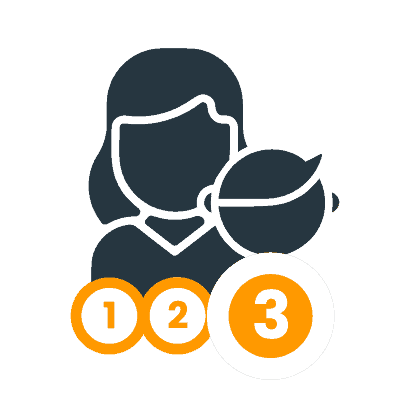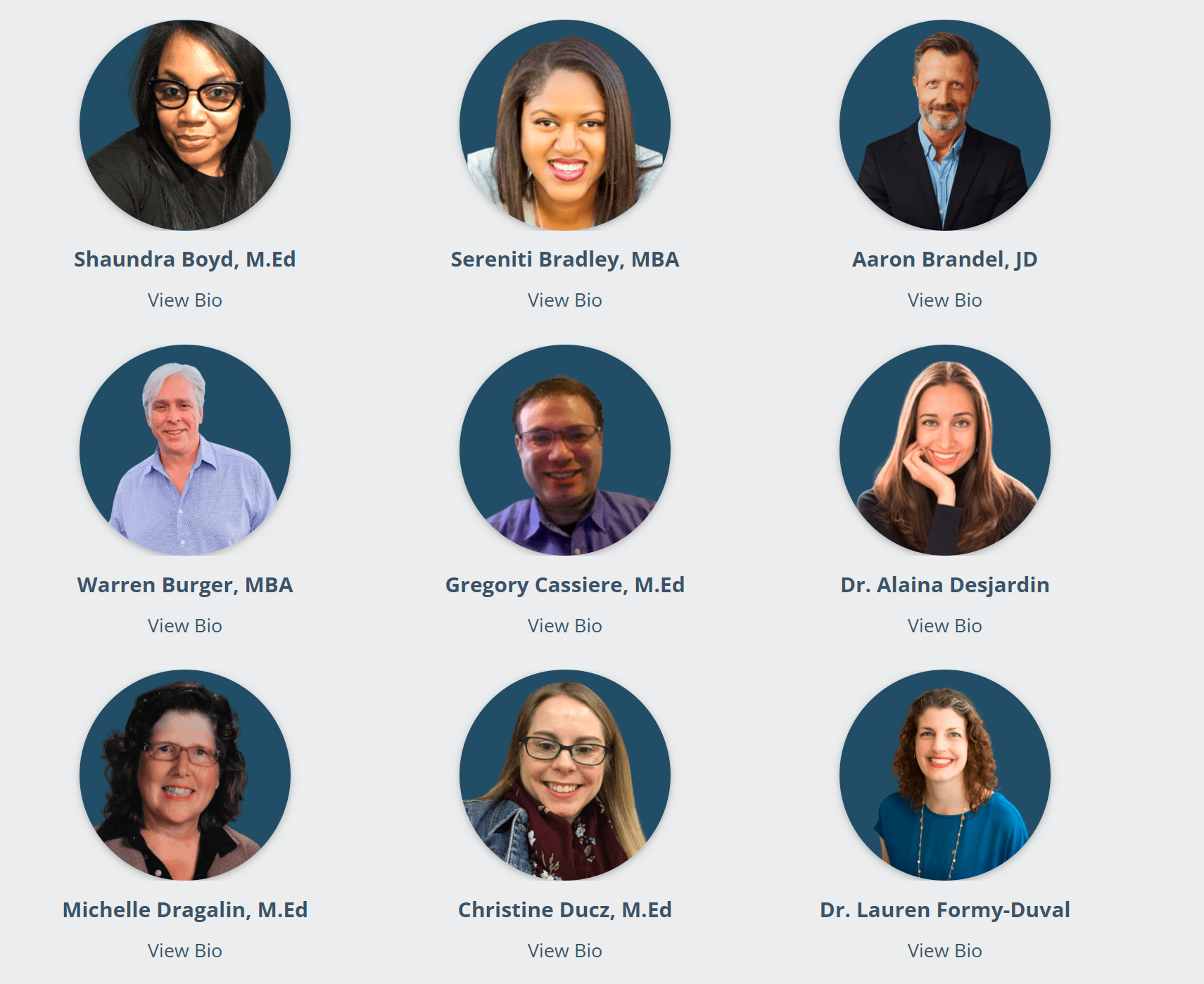Start Date: Enrolling Now
Program Hours: 10
Program Cost: $299
Prerequisite Courses: 10 Hours of Basic Child Care Program & 10 Hours of Intermediate Child Care Program
Advanced Child Care Training & Certification

The Advanced Child Care Certification program prepares you to be a full-time Nanny. Advanced Child Care graduates learn how to help children with their homework and aid children as they develop self-regulation skills. Nannies also learn how to create positive learning environments with music, art, and exercise.
Focused on supporting multiple children academically and developmentally while the family members are at their place of employment, the Advanced Child Care program requires 30 hours of child care classes. The 30 hours include 10 hours of Advanced classes, 10 hours of Intermediate classes and 10 hours of Basic classes.
You must sign up for or have completed the “Intermediate” level before you can start the “Advanced” program.

Who Should Enroll?
The Advanced Child Care program is designed for nannies seeking full-time positions with families or employers including year-round or full-time summer positions.
What Topics are Covered?
- Advanced newborn care
- Teaching self-regulation
- Nutrition for children
- Fitness for child athletes
- Children and music
- Children and art
- Learning stations
- Helping with homework
- Parenting styles
- Communication
Who are the Instructors?
The Nanny Institute has 30+ faculty members who are experts as all our faculty have advanced degrees, at least 5 years of experience and a passion for child care. We invested in the right people to build and teach our curriculum so you learn from pediatricians, early childhood educators and child psychologists, many of whom were former nannies.
Tuition Payment Options
The main courses can be bought individually for $299. They must be purchased and completed in sequential order.
You can san save money by purchasing several programs at one time.
Returning Students – Enroll Here
New Students – Enroll Here
We have many programs that will align with your career goals. Please see our program overview page to see the different options available.
What is the Class Structure?
Each class is an on-demand video by our faculty and every class has a study guide that you download. You complete the study guide as you watch the course. After each course, there is a short quiz to test your understanding of the course material. The study guide and quiz prepare you for the multiple choice exam at the end of the program. The assignments and proficiency requirements (quizzes & exams) in addition to a comprehensive curriculum and college faculty are the foundation for the Nanny Institute to issue Certifications, not certificates of attendance.

How Do I Get Certified?

1. Sign Up For A Program
Choose from one of our learning programs that will meet your needs.

2. Attend The Online Courses
Our online courses are taught by industry experts.

3. Earn A Certification
At the end of the program, you will take a multiple choice exam that will test your knowledge.
What Courses are in the Advanced Child Care Certification?
CC 301: Learning Environments and Styles
CC 302: Teaching Self-Regulation
CC 303: Advanced Newborn Care
CC 304: Helping with Homework
CC 305: Children and Music
CC 306: Children and Art
GE 301: Communicating with Families
GE 302: Parenting Styles
GE 303: Classroom Management
HS 301: Fitness for Child Athletes
HS 302: Nutrition for Children
All Nanny and Sitter Courses are Taught by Child Care and Academic Experts
Meet Our Amazing Faculty
I’m having a wonderful career teaching children as well as raising 4 of my own. As I now have grandchildren, I’m fortunate I can focus on college level training to help the next generation of teachers, caregivers, and parents.
Frequently Asked Questions
Are there financial payment plans, discounts or sales?
The Nanny Institute allows you to make $299 payments over time by purchasing each level separately. This allows students to pay for 10 hours of class at a time.
The Nanny Institute also offers scholarships, when available. While businesses can offer discounts and sales, the Nanny Institute is a career college and adheres to the Department of Education requirements. Licensed post-secondary schools must comply with 6E-1.0032(7), F.A.C which states, “Tuition or fee discounts are not permissible.”
Are there financial payment plans, discounts or sales?
The Nanny Institute allows you to make $400 payments over time by purchasing each level separately. This allows students to pay for 10 hours of class at a time.
The Nanny Institute also offers scholarships, when available. While businesses can offer discounts and sales, the Nanny Institute is a career college and adheres to the Department of Education requirements. Licensed post-secondary schools must comply with 6E-1.0032(7), F.A.C which states, “Tuition or fee discounts are not permissible.”
Can I watch the classes on my phone?
I am not living in the United States and I am not a US citizen, can I enroll?
You do not need to be a United States citizen but you must upload a copy of a government-issued identification from any recognized country to verify your identity.
Do these programs count for the US Nanny Association Certifications?
Yes. All programs (Basic, Intermediate, Advanced, Specialist and Professional Childcare, Newborn Care Specialist and eLearning Facilitator) are accepted by the US Nanny Association for the training requirements to earn the Nanny and Childcare Provider (NCP) Credential. The Newborn Care is accepted by the US Nanny Association for the training requirements for the Newborn and Infant Care Professional (NICP). The Professional Childcare program is accepted by the US Nanny Association for the training requirements to earn the Professional Nanny and Childcare Provider (PNCP) Credential.
The US Nanny Association and the Nanny Institute are separate entities. Like many childcare businesses, the Nanny Institute is an organization member of the US Nanny Association.
What are the enrollment requirements?
Will I need to buy textbooks?
No, all the course materials are available online and included in the tuition and fees. Every course has a study guide that can be downloaded and used to capture notes from the course. These study guides create a textbook that you can keep. The materials are for personal use only. All course videos and resources are copyrighted and cannot be used for any business purpose.

Need Help Staying on Track?
Download Litmus App
The Nanny Institute proudly uses Litmos as our eLearning partner. Litmos Mobile makes learning more accessible for you by ensuring you can access all your eLearning courses via your smartphone. With this app, you can easily search for your organization’s learning content and access it anytime, anywhere. With this app, students gain flexibility, have greater engagement and course consumption. This app requires an active Litmos account which is your Nanny Institute username and password.

